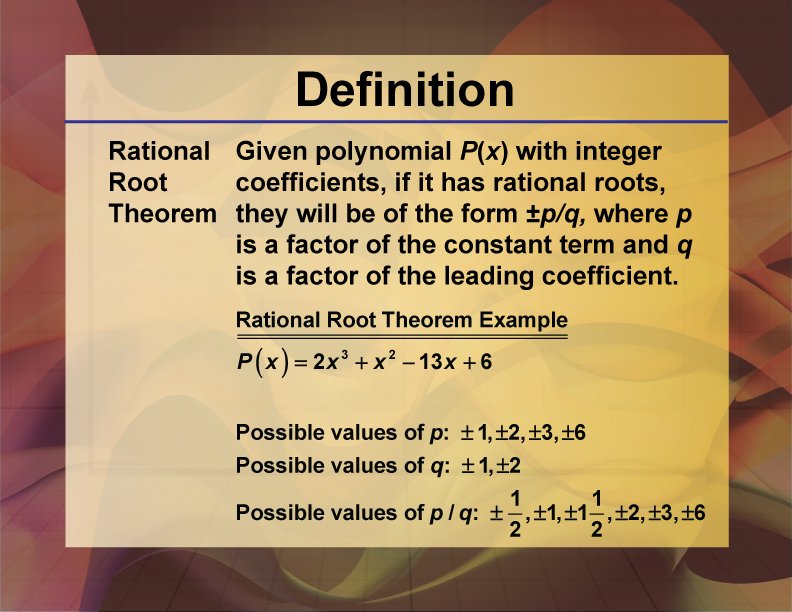
Display Title
Definition--Polynomial Concepts--Rational Root Theorem
Display Title
Rational Root Theorem

Topic
Polynomials
Definition
The Rational Root Theorem states that any rational root of a polynomial equation is a factor of the constant term divided by a factor of the leading coefficient.
Description
The Rational Root Theorem is a powerful tool in algebra that provides a systematic way to identify possible rational roots of a polynomial equation. According to the theorem, any rational root of a polynomial equation is a factor of the constant term divided by a factor of the leading coefficient. This theorem is particularly useful for solving higher-degree polynomial equations and for analyzing polynomial functions.
Understanding and applying the Rational Root Theorem is crucial for solving polynomial equations and for analyzing the behavior of polynomial functions. It provides a method for identifying potential rational roots, which can then be tested to find the actual roots of the polynomial. The Rational Root Theorem is also a stepping stone to more advanced algebraic techniques such as synthetic division and polynomial factorization.
In practical applications, the Rational Root Theorem is used in fields such as physics, engineering, and economics to model and analyze real-world phenomena. It helps in understanding the dynamics of systems, predicting trends, and solving complex problems involving polynomial relationships. Mastery of the Rational Root Theorem enhances problem-solving skills and provides a deeper understanding of algebraic and calculus concepts.
For a complete collection of terms related to polynomials click on this link: Polynomials Collection
| Common Core Standards | CCSS.MATH.CONTENT.HSA.APR.A.1, CCSS.MATH.CONTENT.HSA.APR.B.3 |
|---|---|
| Grade Range | 8 - 10 |
| Curriculum Nodes |
Algebra • Polynomials • Factoring Polynomials |
| Copyright Year | 2021 |
| Keywords | Rational Root Theorem, factoring |